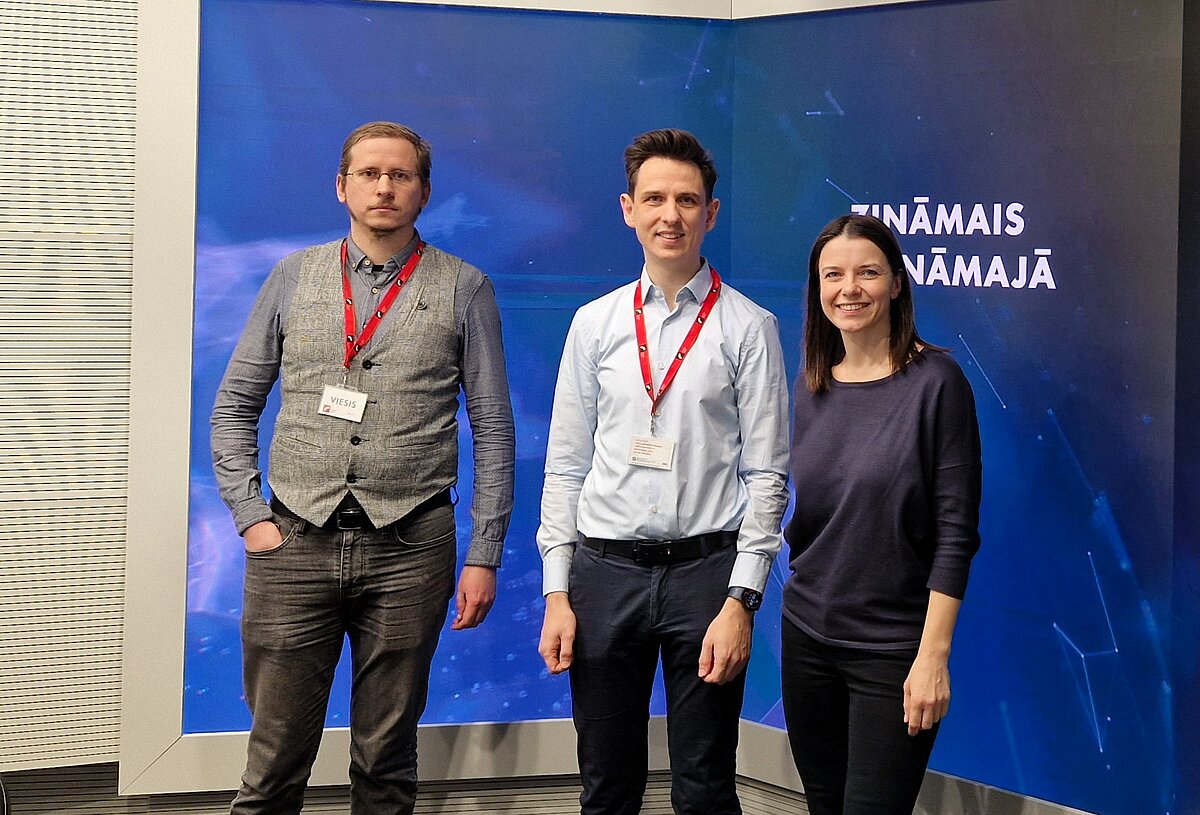
A floating notion in the field of green energy is that sustainable energy generation and storage has advanced to a stage where it could fully power the world in its current state without the assistance of conventional oil and gas energy production. But how true is this statement? What do researchers think about it? To answer these questions the Latvian Radio show “Zināmais nezināmajā” (“The Known in the Unknown”) invited researchers from the Institute of Solid State Physics (ISSP UL) to tell more.
Gints Kučinskis, Head of the Energy Materials Laboratory, and Raitis Gržibovskis, Leading Researcher of the Organic Materials Laboratory, gave their insight on how realistic this outlook is. Kučinskis comments that while such a proclamation is very loud and bold, it may yet be premature as sustainability in the energy sector is more of a trend that we’re moving in the direction of, for example, with the Green Course of the EU. Gržibovskis adds that energy generation via alternative methods is one thing, but due to its cyclical and unpredictable nature, the thing to focus on might be novel energy storage, for example, using hydrogen for long-term storing.
They continued about innovations and future prospects in the field of batteries (like battery farms being built next to solar panel fields), also touching on other hurdles faced by sustainable energy, like poor infrastructure planning that results in discontent among communities. As always, our institute is happy to engage in scientific discourse with the general public – only by having an open discussion and being transparent about our advancements and challenges can we make meaningful strides in progressing society.